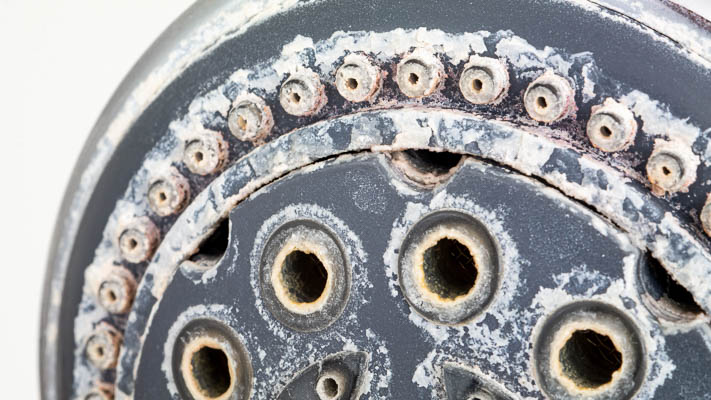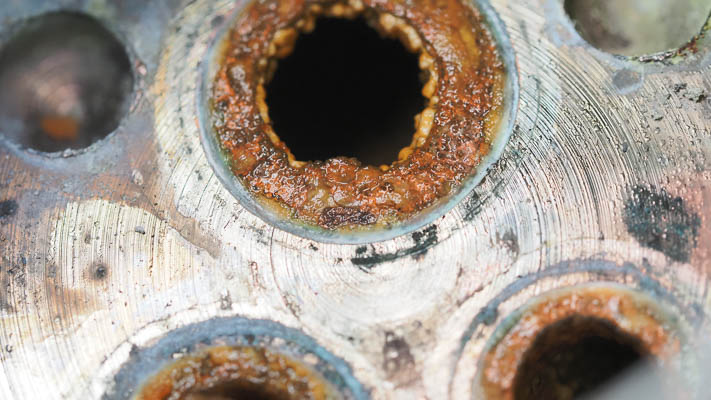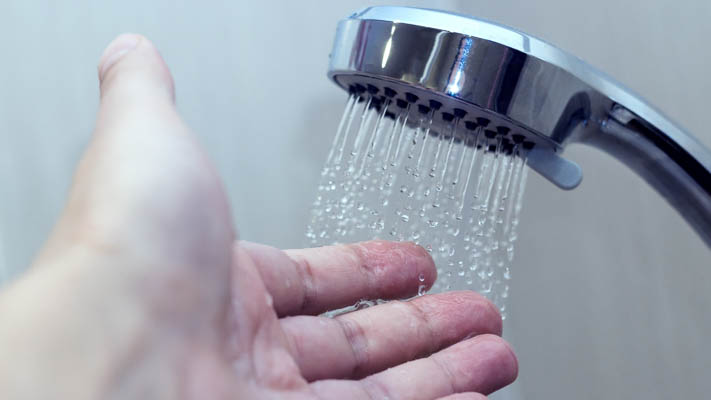What Do Pressure Regulators Do?
House water pressure regulators are essential for controlling and maintaining the water pressure that is distributed to fixtures and appliances throughout your home.
In areas where the municipal water supply has exceptionally high pressure, homes are equipped with water pressure regulators, often referred to as pressure reducing valves (PRVs). These devices serve as a buffer between the high-pressure municipal water supply and the internal plumbing system, ensuring that the pressure remains consistently safe.
These regulators are usually installed where the main water line enters the home. They work by automatically adjusting the incoming water pressure to a safe, predetermined level for your plumbing system and its components.
Why Do Pressure Regulators Fail?
While home pressure regulators are crucial for maintaining safe and consistent water pressure throughout a home's plumbing system, they are not immune to failures caused by various factors:
- Corrosion: Corrosion is a common issue in plumbing systems, especially in regions with hard water. Over time, the accumulation of rust (often caused by outdated galvanized plumbing) and mineral deposits within the pressure regulator can hinder its functionality, causing it to seize or malfunction.
- Water Contaminants: Debris and sediment from the water supply can enter the pressure regulator, potentially clogging its internal passages and affecting its performance, which may lead to failure.
- Excessive Pressure Spikes: Plumbing systems can experience sudden pressure spikes due to factors such as water hammer, rapid valve closures, or pump malfunctions. These spikes place extra stress on the pressure regulator, potentially causing internal components to fail.
- Wear and Tear: Similar to any mechanical component, pressure regulators experience wear and tear over time. The constant cycling of pressure fluctuations can lead to the degradation of internal parts, including springs, diaphragms, and seals. This wear can eventually compromise the regulator's ability to maintain accurate pressure control.

To address these issues, it's essential for homeowners to have their pressure regulators inspected regularly.
Here at Repipe Specialists, we specialize in whole-home repipes and do not offer general plumbing services such as replacing a PRV. However, we do maintain a list of trusted local referrals in many areas. Please feel free to contact us, and we'd be happy to provide a referral.
Get your free estimate today
With over 75,000 repipes completed, we've perfected our One-Stop Repipe™ for your home.
How Can A Faulty Pressure Regulator Cause Low Water Pressure?
If you have a pressure issue related to the PRV, it will likely affect all outlets in your home. A faulty pressure regulator can cause low water pressure throughout the plumbing system for several reasons:
- Blockages or Debris: Over time, pressure regulators can accumulate sediment, debris, or mineral deposits from the water supply. These blockages can hinder the valve mechanism's movement or clog internal passages, causing the regulator to restrict water flow and subsequently reduce water pressure.
- Leakage: A damaged diaphragm or faulty sealing within the regulator can lead to water leakage. This loss of pressure before it reaches the plumbing system can result in diminished water flow and reduced pressure at fixtures.
- Reduced Pressure Setting: A malfunctioning pressure regulator might have a faulty internal spring or diaphragm. This could result in the regulator being unable to maintain the desired pressure level, leading to an unintentional reduction in water pressure throughout the plumbing system.
- Stuck Closed Position: If the pressure regulator's valve mechanism gets stuck in a closed position, it restricts the flow of water entering the plumbing system. This leads to a significant drop in water pressure downstream, causing fixtures like faucets, showers, and appliances to receive inadequate water flow.
When a faulty pressure regulator is causing low water pressure, it is important to act quickly. For more information about addressing low water pressure, read our ultimate guide to fixing low water pressure.
How to Fix Low Water Pressure Caused by Pressure Regulators
If you're experiencing low water pressure due to a pressure regulator issue, start by checking the regulator to make sure it's working properly. If the regulator is faulty, it will likely need to be replaced. We would consider this a temporary issue because it involves replacing just one part.
However, if low water pressure in your system is due to scale and mineral buildup in the pressure regulator, you may need to consider repiping your entire plumbing system. We classify this as a systemic issue because it will likely exist throughout your home's plumbing.

Mineral buildup inside the pipes can lead to persistent low water pressure, and repiping becomes the only viable solution. Once mineral deposits have formed inside the pipes, efficient cleaning becomes impractical.
To insure the longevity of your pipes, consider using PEX (cross-linked polyethylene) tubing, which is generally more resistant to mineral buildup compared to other piping materials like copper.
One of our Repipe Specialist consultants would be happy to explain all your options, either in person or in a remote consult session - schedule a free repipe quote.
Get a Quote to Repipe Your Home
Here at Repipe Specialists, we've fully replaced plumbing in thousands of homes across the USA with modern Uponor PEX tubing. We continually get positive customer feedback from customers at how pleased they are with their fast flowing, high-pressure water post-repipe. We often exceed their expectations on:
- Speed: Our repipe crews typically complete a repipe in a day, returning on another day for wall patching.
- Convenience: Through our One-Stop Repipe™ process, we handle everything from permits, to wall patching, to inspections.
- Cleanliness: Our crews are trained to protect your home while working (we cover all surfaces with protective sheeting), and to clean up fully at the end of each day.
- Peace of Mind: Repipe Specialists is a fully licensed plumber in every state we operate in, and we back all of our repipes with a lifetime warranty.
- Financing programs: To help take the sting out of unplanned repipe expenses, we offer several financing programs.
- Price: As a specialist that performs hundreds of repipes a week, we can deliver high-quality repipes at a lower cost vs generalist plumbers. We have another article that covers whole house repipe cost factors in detail. Our quotes typically range from $4,500 to $15,000 depending on the size and complexity of your project.
Schedule a free in-home consult, and a local repipe consultant will explain all your repiping options and provide you with a written, fixed-price quote. Replace your pipes and boost your water pressure for years to come.

